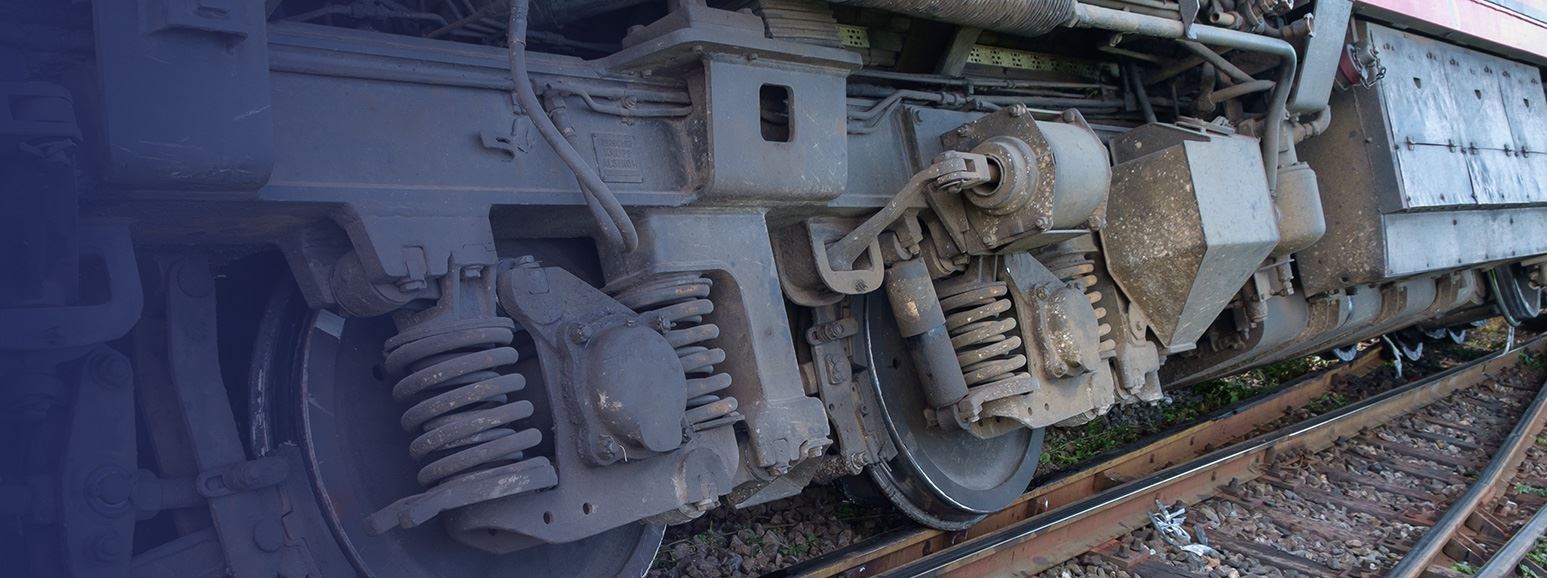

Poughkeepsie Train Accident Attorneys
Helping Victims of Train Accidents at the Poughkeepsie Station
Train accidents are not as common as car accidents, but when they do occur, they are often catastrophic. The sheer size and weight of a train can cause devastating injuries and death. If you or someone you love has been injured in a train accident, you may be entitled to compensation for your medical bills, lost wages, pain and suffering, and more.
At Basch Keegan & Spada, we have extensive experience handling all types of personal injury cases, including those involving train accidents. We understand the complexities of these cases and can help you navigate the legal process from start to finish. Our Poughkeepsie train accident lawyers are committed to helping you recover the maximum compensation.
Call (845) 251-4545 or contact us online to request a free consultation.
What Causes Train Accidents?
Train accidents can occur for a variety of reasons. In some cases, they are caused by the negligence of the train operator or another party. In other cases, they are caused by defective equipment or a failure to properly maintain the train or tracks. Regardless of the cause, train accidents can result in serious injuries and death.
Some of the most common causes of train accidents include:
- Human Error: Train operators or engineers may make mistakes, such as failing to observe signals or speed limits, or not properly coordinating with other trains on the same track. Maintenance workers might also make errors during maintenance and repair work on the tracks or rolling stock.
- Track Defects: Damaged or poorly maintained tracks can lead to derailments or other accidents. This may include issues like broken rails, misaligned tracks, or worn-out components.
- Equipment Failures: Train components, including brakes, wheels, and locomotives, can fail due to wear and tear, inadequate maintenance, or manufacturing defects.
- Signal and Communication Failures: Malfunctioning signals, switches, or communication systems can lead to accidents by causing misunderstandings or miscommunications between train operators and dispatchers.
- Weather Conditions: Adverse weather conditions, such as heavy rain, snow, fog, or ice, can reduce visibility, affect track conditions, and make braking less effective, increasing the risk of accidents.
- Human Factors: Fatigue and distraction among train operators and other rail employees can impair their ability to respond to changing conditions and make safe decisions.
- Trespassing: People who illegally cross tracks, walk along them, or engage in other dangerous behavior near railway lines can be struck by trains, causing accidents.
- Collision with Vehicles: Trains colliding with vehicles at road crossings can result from issues like improper signaling, driver error, or mechanical failure.
- Derailments: Derailments occur when train cars go off the tracks. This can happen due to track defects, excessive speed, uneven loads, or faulty wheelsets.
- Overloading: Trains carrying cargo that exceeds weight limits can experience excessive strain on tracks and equipment, potentially leading to accidents.
- Inadequate Maintenance: Insufficient maintenance of trains, tracks, and other railway infrastructure can lead to equipment failures and safety hazards.
- Sabotage and Vandalism: Deliberate acts of vandalism or sabotage, such as tampering with tracks or signaling systems, can cause train accidents.
- Operational Errors: Mistakes in train scheduling, routing, and coordination between rail operators and dispatchers can lead to accidents, particularly in high-traffic areas.
- Inadequate Training: Insufficient training for train operators and maintenance personnel can contribute to accidents, as they may not have the knowledge and skills to respond effectively to various situations.
Who is Liable for a Train Accident?
Liability for a train accident depends on the cause of the accident. In many cases, the train operator is at fault. However, other potential parties could also be to blame.
Some of the parties that may be liable for a train accident include:
- Train Operator (Engineer): The train operator, also known as the engineer, may be held liable if the accident resulted from their negligence, such as disregarding signals, exceeding speed limits, or failing to respond appropriately to changing conditions.
- Railroad Company: The railroad company that owns and operates the train may be held liable if the accident occurred due to their negligence, such as inadequate maintenance, substandard training, or lax safety protocols.
- Maintenance Crew: If the accident was a result of faulty maintenance, the individuals or maintenance crew responsible for maintaining the tracks, trains, or signaling equipment may be held liable.
- Manufacturer of Equipment: Manufacturers of train components, such as locomotives, brakes, wheels, and signaling systems, can be held liable if equipment defects or design flaws contributed to the accident.
- Government Entities: Government agencies responsible for maintaining railway infrastructure, including tracks and road crossings, may be liable if the accident resulted from their failure to address known safety issues.
- Vehicle Operators (at Road Crossings): In cases involving collisions between trains and vehicles at road crossings, the driver of the vehicle may be held liable if they failed to obey crossing signals, attempted to cross while the barriers were down, or violated other traffic rules.
- Trespassers: Individuals who engage in illegal activities, such as walking or playing on the tracks, may be held liable for any injuries or damages they incur, but this may not apply if the railway company failed to secure their property adequately.
- Passengers: In some cases, passengers or their actions can contribute to train accidents. If a passenger's behavior directly leads to an accident, they may be held liable for their actions.
- Saboteurs: Individuals who intentionally damage tracks, signaling systems, or other railway infrastructure can be held criminally and civilly liable for their actions.
What to Do After a Train Accident
After a train accident, it is important to take the proper steps to protect your health and your rights.
If you are able, you should try to do the following:
- Seek Medical Attention: Even if you do not think you were seriously injured, you should still see a doctor as soon as possible after a train accident. Some injuries, such as traumatic brain injuries and internal bleeding, may not be immediately apparent. A doctor can evaluate your condition and make sure you receive the necessary treatment.
- Report the Accident: You should report the accident to the train company and the police as soon as possible. The train company will conduct its own investigation, but the police will also conduct an investigation and create an accident report. You should request a copy of the accident report for your records.
- Document the Scene: If you are able, you should take pictures and videos of the accident scene. You should also write down the names and contact information of any witnesses. This evidence can be used to support your claim.
- Do Not Give a Statement: You should not give a statement to the train company or the insurance company until you have spoken to an attorney. Anything you say can be used against you.
- Do Not Accept a Settlement: You should not accept a settlement from the train company or the insurance company until you have spoken to an attorney. The initial settlement offer is almost never enough to cover the full cost of your injuries.
- Contact an Attorney: You should contact an attorney as soon as possible after a train accident. An attorney can help you understand your legal rights and options and help you pursue the compensation you are owed.
How Our Train Accident Lawyers Can Help
Train accident cases are often complex and involve multiple parties. Our attorneys have the experience, skill, and resources to handle even the most complex train accident cases. We can conduct a thorough investigation into the cause of the accident and gather all available evidence. Our team can also identify all potentially liable parties and aggressively pursue the full, fair compensation you are owed.
Our attorneys can help you recover compensation for:
- Medical expenses
- Lost wages
- Loss of earning capacity
- Pain and suffering
- Emotional distress
- Disfigurement
- Disability
- Reduced quality of life
- Loss of consortium
- Property damage
- And more
If you lost a loved one in a train accident, you may be entitled to compensation for your loved one’s medical expenses, funeral and burial expenses, loss of income, loss of companionship, and more. Our attorneys can help you file a wrongful death claim and pursue the justice your loved one deserves.
Contact us today at (845) 251-4545 for a free case review.

What Sets Us Apart?
-
Here to Help Win the Fight
With our proven experience, we're known for tackling tough claims. If you or a loved one has been harmed by someone else's negligence, we're here to help you fight for justice.
-
Here to Help Get Results
We have the resources and experience to help victims level the playing field with even the most powerful adversaries – and we have the record of success to back it up.
-
Here to Help When You’re Hurt
We provide reliable support, allowing you to focus on recovery while we handle your legal claim.
-
Here to Help Regardless of Who You Ask
Our focus on personal attention lets us craft legal strategies tailored to each client's unique needs, earning us the respect of our peers.
-
Here to Help The Community
Our lawyers have deep roots in the community and a lengthy history of giving back. When the community needs us, we are always here to help.